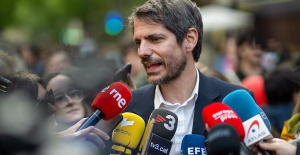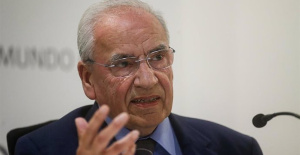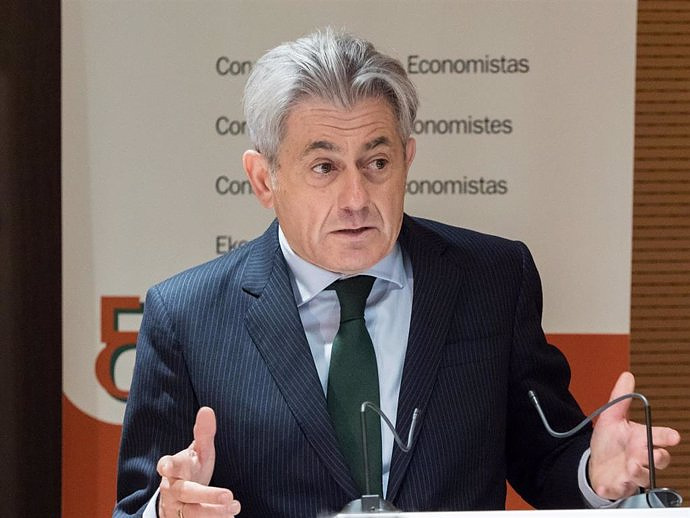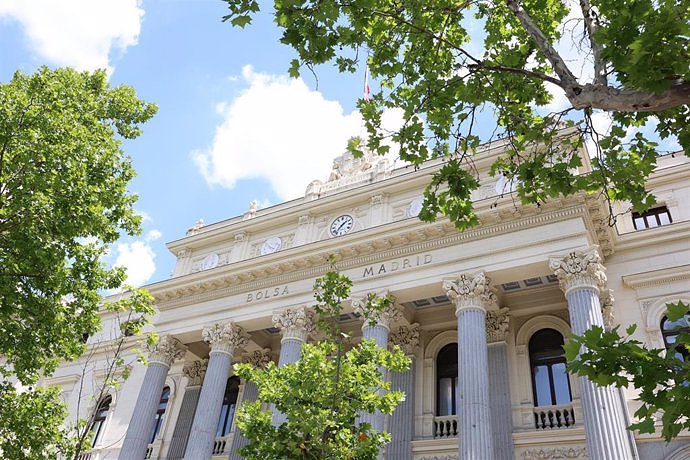The "total war" of the new president against Al Shabaab provokes a bloody response from the terrorists
MADRID, 5 Nov. (EUROPA PRESS) -
The double attack on October 29 in Mogadishu with more than 120 dead is one of the bloodiest committed to date by Al Shabaab and comes to join a wave of attacks with which the Al Qaeda affiliate in Somalia wants to expose that has not been defeated despite the "total war" declared by the president, Hasan Sheikh Mohamud.
The immediate consequence of this upsurge in conflict is that 2022 threatens to become one of the deadliest years to date. According to data collected by the ACLED project, which counts victims of violence, some 1,400 deaths have already been counted so far this year, a figure higher than that of 2020 and 2021.
This figure - which includes the victims of Al Shabaab as well as the Somali and foreign forces operating in the country and the Islamic State affiliate, which is not very active in Somalia - is well below the record of more than 2,600 dead in 2017. , the year in which the deadliest attack to date took place. The scene of that attack, which left more than 500 dead and which Al Shabaab never claimed responsibility for, was precisely the same as that of last Saturday.
"The attacks were a message sent by the militants to show that they are still alive despite the fact that they are being defeated by government forces," said the Somali president after the double car bomb attack next to the Ministry of Education.
Mohamud, who already governed Somalia between 2012 and 2017, took office last June and from the first moment he focused on Al Shabaab. However, it was the attack on the Al Hayat hotel in Mogadishu, which occurred on August 19, that led him to launch what he defined as a "total war" to end the Al Qaeda affiliate.
The terrorists carried out the longest siege they have committed so far, which lasted for more than 30 hours and left more than twenty dead before the assailants were killed. In addition, Mohamud was mocked in a statement for saying that he "could crush" Al Shabaab and for declaring a war "that he is not prepared to fight."
However, experts agree that the offensive launched by government forces with the support of clan militias -- known as Maawisley -- as well as the African Union is making clear progress, especially in central Somalia, a of Al Shabaab's main areas of operations, is paying off.
The operations have had their epicenter in the Hiraan region, but have also spread to neighboring Galmudug and Bay, and have allowed the jihadists to seize some towns and areas under their control, although the challenge now will be to be able to maintain them.
The Somali government is also counting on the support of the United States in this effort, particularly by air. The Joe Biden Administration decided last June to return US troops to Somalia, sending 500 troops, after Donald Trump had withdrawn troops from the African country in December 2020. In addition, so far this year they have carried out ten aerial drone strikes against Al Shabaab.
The terrorist group has proceeded to carry out numerous attacks in retaliation, including the triple suicide attack perpetrated in the capital of Hiraan, the epicenter of the offensive against it, and which left at least 30 dead, as well as many others in other points of the country's geography, including Mogadishu. In all, by the Long War Journal's count, he has carried out almost 40 suicide bombings this year.
In the opinion of Caleb Weiss, an expert analyst at Long War Journal, as the offensive against Al Shabaab increases and expands, the terrorist group can be expected to "carry out more retaliatory attacks against civilian targets while trying to undermine the political will and support popular to the offensive".
An opinion shared by Rashid Abdi, an expert on the Horn of Africa. "It is no surprise that Al Shabaab is more lethal now. It has its back against the wall. It has lost more territory in four months than in the last five years," he stressed in statements to the BBC. "He is facing the most serious revolt of the clans so far and his economic empire is under pressure," he stresses.
This is precisely another of the fronts that President Mohamud wants to open, the economic one, to try to leave the terrorists without their sources of income, mainly the taxes they collect. According to the Somali Hiraal think tank, Al Shabaab has an annual budget of 100 million dollars, a quarter of which is used to buy weapons and combat material.
Thus, Caleb Weiss stresses that "despite some setbacks in recent years, Al Shabaab remains one of the most effective affiliates of Al Qaeda." The group "maintains significant control over much of southern Somalia and continues to have the ability to strike in Mogadishu," the capital from which it withdrew in 2011, as well as in Kenya, where it also controls territory.
The upsurge in violence in Somalia also occurs at a particularly delicate moment from a humanitarian point of view. The country is going through its longest drought in 40 years, already affecting 7.8 million people, a figure that has doubled since the beginning of the year. This has caused severe food insecurity, with 6.7 million affected, and the risk of famine hanging in the air.

 Exploring Cardano: Inner Workings and Advantages of this Cryptocurrency
Exploring Cardano: Inner Workings and Advantages of this Cryptocurrency Seville.- Economy.- Innova.- STSA inaugurates its new painting and sealing hangar in San Pablo, for 18 million
Seville.- Economy.- Innova.- STSA inaugurates its new painting and sealing hangar in San Pablo, for 18 million Innova.- More than 300 volunteers join the Andalucía Compromiso Digital network in one month to facilitate access to ICT
Innova.- More than 300 volunteers join the Andalucía Compromiso Digital network in one month to facilitate access to ICT Innova.-AMP.- Ayesa acquires 51% of Sadiel, which will create new technological engineering products and expand markets
Innova.-AMP.- Ayesa acquires 51% of Sadiel, which will create new technological engineering products and expand markets The Community will provide facilities and support to the Bullfighting Prize with the help of the Toro de Lidia Foundation
The Community will provide facilities and support to the Bullfighting Prize with the help of the Toro de Lidia Foundation Page will contact the bullfighting sector to create, from C-LM, Bullfighting Awards that will have national reach
Page will contact the bullfighting sector to create, from C-LM, Bullfighting Awards that will have national reach Urtasun, on eliminating the National Bullfighting Award: "The majority of Spaniards support the decision I have made"
Urtasun, on eliminating the National Bullfighting Award: "The majority of Spaniards support the decision I have made" Alfonso Guerra sees Sánchez in an "autocratic" drift and accuses him of generating division "between the two Spains"
Alfonso Guerra sees Sánchez in an "autocratic" drift and accuses him of generating division "between the two Spains" How Blockchain in being used to shape the future
How Blockchain in being used to shape the future Not just BTC and ETH: Here Are Some More Interesting Coins Worth Focusing on
Not just BTC and ETH: Here Are Some More Interesting Coins Worth Focusing on The Generalitat calls for aid worth 4 million to promote innovation projects in municipalities
The Generalitat calls for aid worth 4 million to promote innovation projects in municipalities UPV students design an app that helps improve the ventilation of homes in the face of high temperatures
UPV students design an app that helps improve the ventilation of homes in the face of high temperatures Ivace and promotes a less invasive device for the early detection of prostate cancer
Ivace and promotes a less invasive device for the early detection of prostate cancer Valencia unanimously approves the ordinance to allocate spaces to test innovative initiatives
Valencia unanimously approves the ordinance to allocate spaces to test innovative initiatives A million people demonstrate in France against Macron's pension reform
A million people demonstrate in France against Macron's pension reform Russia launches several missiles against "critical infrastructure" in the city of Zaporizhia
Russia launches several missiles against "critical infrastructure" in the city of Zaporizhia A "procession" remembers the dead of the Calabria shipwreck as bodies continue to wash up on the shore
A "procession" remembers the dead of the Calabria shipwreck as bodies continue to wash up on the shore Prison sentences handed down for three prominent Hong Kong pro-democracy activists
Prison sentences handed down for three prominent Hong Kong pro-democracy activists ETH continues to leave trading platforms, Ethereum balance on exchanges lowest in 3 years
ETH continues to leave trading platforms, Ethereum balance on exchanges lowest in 3 years Investors invest $450 million in Consensys, Ethereum incubator now valued at $7 billion
Investors invest $450 million in Consensys, Ethereum incubator now valued at $7 billion Alchemy Integrates Ethereum L2 Product Starknet to Enhance Web3 Scalability at a Price 100x Lower Than L1 Fees
Alchemy Integrates Ethereum L2 Product Starknet to Enhance Web3 Scalability at a Price 100x Lower Than L1 Fees Mining Report: Bitcoin's Electricity Consumption Declines by 25% in Q1 2022
Mining Report: Bitcoin's Electricity Consumption Declines by 25% in Q1 2022 Oil-to-Bitcoin Mining Firm Crusoe Energy Systems Raised $505 Million
Oil-to-Bitcoin Mining Firm Crusoe Energy Systems Raised $505 Million Microbt reveals the latest Bitcoin mining rigs -- Machines produce up to 126 TH/s with custom 5nm chip design
Microbt reveals the latest Bitcoin mining rigs -- Machines produce up to 126 TH/s with custom 5nm chip design Bitcoin's Mining Difficulty Hits a Lifetime High, With More Than 90% of BTC Supply Issued
Bitcoin's Mining Difficulty Hits a Lifetime High, With More Than 90% of BTC Supply Issued The Biggest Movers are Near, EOS, and RUNE during Friday's Selloff
The Biggest Movers are Near, EOS, and RUNE during Friday's Selloff Global Markets Spooked by a Hawkish Fed and Covid, Stocks and Crypto Gain After Musk Buys Twitter
Global Markets Spooked by a Hawkish Fed and Covid, Stocks and Crypto Gain After Musk Buys Twitter Bitso to offset carbon emissions from the Trading Platform's ERC20, ETH, and BTC Transactions
Bitso to offset carbon emissions from the Trading Platform's ERC20, ETH, and BTC Transactions Draftkings Announces 2022 College Hoops NFT Selection for March Madness
Draftkings Announces 2022 College Hoops NFT Selection for March Madness























